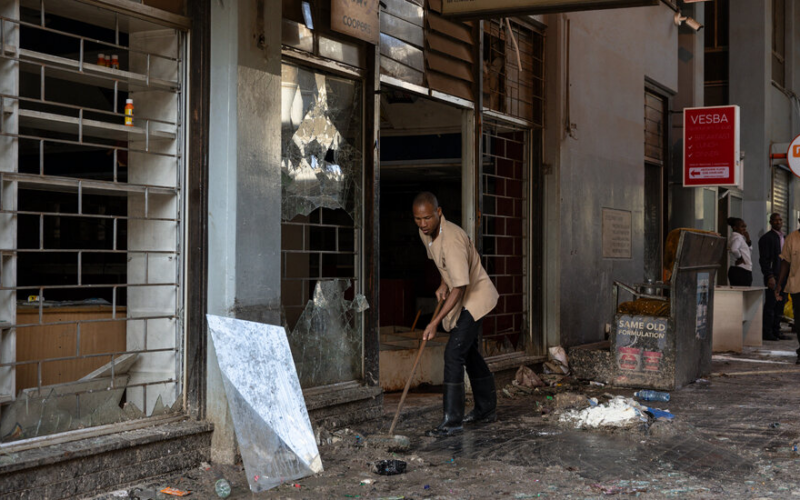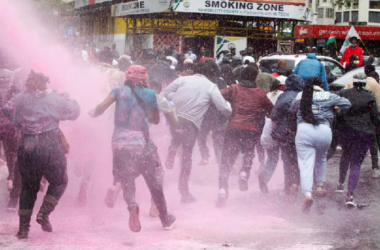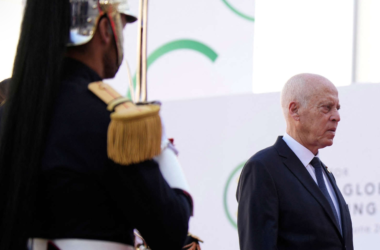In the aftermath of violent protests against new tax increases in Kenya, major cities remained tense on Wednesday, with the government deploying military forces to quell unrest that erupted a day earlier.
In Nairobi, the capital city, the lingering scent of tear gas filled the air as debris from clashes between demonstrators and police officers dotted the streets. The City Hall offices bore signs of the unrest, with overturned rocks and a burned-out vehicle nearby. Across from the Supreme Court complex, damaged fencing marked the extent of the disturbances.
Police presence remained heightened around Parliament, restricting pedestrian access in the area.
While businesses cautiously resumed operations across the country, local newspapers depicted the chaos of the previous day on their front pages. Headlines like “Pandemonium” and “Deaths, Chaos, Rage” reflected the gravity of the situation.
According to Amnesty International and various Kenyan civic organizations, at least five individuals lost their lives during the protests, with 31 others reported injured. These figures, however, were subject to ongoing verification, and activists expressed concerns that the actual toll could be higher.
Social media was awash with appeals for information about missing persons who were last seen during the demonstrations. Reports indicated that approximately 50 young Kenyans had been abducted, allegedly due to their vocal opposition to the tax hikes.
Rights groups condemned these abductions, citing a pattern of alleged extrajudicial disappearances by Kenya’s police force. The Chief Justice of Kenya, Martha Koome, denounced the abductions as an assault on the rule of law and called for detained individuals to be promptly presented in court.
The protests were sparked by a finance bill introduced by President William Ruto’s government to raise revenue through additional taxes, citing the need to address national debt and fund infrastructure projects. Critics argue that the bill will escalate living costs, exacerbating public discontent.
Tuesday’s demonstrations, which saw protesters storming Parliament, came as lawmakers approved the controversial legislation. President Ruto condemned the protests as “treasonous” and vowed robust measures to prevent future unrest.
In response to escalating tensions, opposition leader Raila Odinga urged dialogue and called for the government to reconsider the tax bill, emphasizing the need for constructive engagement with demonstrators.
As Kenya navigates the aftermath of these events, the nation faces a critical juncture in balancing economic imperatives with public sentiment amid ongoing security concerns.








